Buying a Motorcycle Part III: The Economics of New Motorcycles
So you want to buy a new motorcycle. You've read Buying a Bike, Part I and Buying a Bike, Part II, the first two installments in this series and you've decided that buying somebody else's used bike doesn't appeal to you. This is understandable; you never truly know where that thing's been. People sell bikes that were raced, stunted, crashed, abused, and all kinds of awful things. And one guy's idea of "well maintained" might not be your idea of well maintained. For instance, my idea of "maintenance" is to lube and adjust the chain every few thousand miles, change the oil when I feel guilty enough, and sell the mess before it hits 20,000 miles.
The main objection folks have to buying new is price. Motorcycles are expensive, especially compared to home appliances like dishwashers or microwave ovens. However, when you adjust for inflation, a good 600cc sportbike is only about 1,600 bukcs in 1970 dollars. Of course, the 1970 sportbike had
But I don't need to talk you into this, right? You've already committed to purchasing a new motorcycle, so let's figure out how to do this right. Naturally, you want the best price, but most consumers don't buy just based on a Pentagon-style "lowest bidder" scheme. Service, selection, and being acknowledged as an equal are very important to people. Remember that you can't ride a price tag.
Like any other retailer, motorcycle dealers make their living by purchasing motorcycles from a manufacturer or a distributor and then selling them to the public for a profit. In general, motorcycle dealers are not wealthy people. Few make a million bucks in the motorcycle industry. Most of them are very hard working people with an expectation to live a comfortable life while doing something they enjoy.
Of course, there are exceptions. Every one of us has had a negative experience at a dealership. Maybe you were ignored for a while, even though you were a serious buyer. Perhaps an inexperienced salesperson made you lose all confidence in that dealership. Or you might just have realized the dealership was taking advantage of buyers by overpricing their products to an extraordinary degree. Horror stories abound, but for the most part, motorcycle dealers just want to make you a happy customer while making enough profit to stay in business.
How do you make customers happy? Just offering the lowest price is a slippery slope for dealers. Somebody can always beat you on price, and in any case customers don't buy based on price alone.
How much they pay for the motorcycle is a closely guarded secret that you have to pay an intelligence service to leak this proprietary information to you. I can save you some money right now: there's a 12-18% margin on new motorcycles not counting such things as added margin on freight and vehicle preparation or the "holdback". Aside from making a profit on the vehicle's margin, dealers also make money on financing and "add-ons" like extended service contracts (also known as extended warranties). In addition, the dealer usually tries to make as big a profit as possible on your trade by getting it for as cheap as he can.
How much they will make on your trade is easy to figure out: go to Kelly Blue Book online and look up the difference between your motorcycle's wholesale or trade-in value and the suggested retail price. Used motorcycles can be a tremendous profit center for motorcycle shops; they offer a better margin than almost any other product or service the dealer offers.
That's what the dealer is hoping to get from you: some profit, return business to his service and accessory departments and plenty of referred customers. He'll have to balance those three goals off of each other. To do this, he relies on a team of professionals called a sales department. Like any professionals, they follow rules, practice their procedures and have regular goals they aim for. You should know more about these people and how they work before you go face off with them.
The Salesperson
Your salesperson is the most important part of this team, as they interface directly with the customer. The salesperson is in a tricky position, as they have to balance your interests against their own and the dealership's, and generally all three are at odds with each other! It's a tricky job, so in my experience less than 20% of them do it with any level of brilliance. There's a lot of turnover here, and a sales floor crawling with lots of inexperienced people you don't recognize from a month before is a sign the dealership might not be the best place to work if you're a salesperson, which means it might not be a good place to do business in overall..
Isn't it better to have an inexperienced salesperson? You would think he'd be more likely to cave in to give you a better deal. But that could backfire: you could spend a lot of time while he gets dressed down by his managers, only to have to go back on what he told you to make you happy and interested in him. If you have a "green pea" salesperson, be patient and expect him to be a slow-transmitting mouthpiece for management.
Will you pay more to have an old hand at the wheel? All a professional salesperson does is remove obstacles to your goal of purchasing a motorcycle at her shop. To do this, she will use clever language and techniques, honed over thousands of years, to get you to purchase the vehicle the same day at the highest price you can stand. If your price isn't high enough for the shop to want to sell the bike, they won't sell it and you won't buy it. You might be more experienced than many buyers, but you aren't more experienced than a seasoned salesperson. Not understanding this can make you an overconfident mark, a chicken ripe for plucking, or something that rhymes with "plucking."
The Sales Manager
The Sales Manager is a seasoned sales professional, if the shop is lucky. One thing that seems true about sales managers everywhere is that they are very busy, usually doing three things at once, especially on those busy days in a dealership like Saturdays and Sundays. That's why when the salesperson goes to talk to the manager it sometimes takes a long time.
This person's responsibility is to make sure the store is selling motorcycles at a profit while keeping the customers, the service department and the DMV happy by following all the rules.
In larger dealerships, a sales team leader will be keeping the junior salespeople in line, but will usually stay out of the picture, until the salesperson feels he's losing the customer: then you will be introduced - "turned over" or "TO'd" in sales parlance - to him. He'll ask you questions to determine if there's any chance of salvaging your sale, and what the salesperson did or didn't do that caused you to attempt walking out the door.
Here's something to keep in mind about all these players: they do this a lot. I've been riding for 18 years and have bought about 30 motorcycles for my personal use, which is a lot, I think. But in my first eight weeks of selling motorcycles at a small dealership I sold 30 vehicles, and I probably talked to about twice that many serious buyers. If a salesman's been working for ten years, he's done it thousands of times! You might be more experienced than many buyers, but you aren't more experienced than a seasoned salesperson. Not understanding this can make you an overconfident mark, a chicken ripe for plucking, or something that rhymes with "plucking."
And certainly no shop that makes a profit allows the customer to make the rules and play his own game.
I know many customers wish they could just waltz into a shop, pick a bike, get approved for credit, pay the invoice price, and ride off. But according to the sales profession, if that were allowed, mayhem would ensue. And certainly no shop that makes a profit allows the customer to make the rules and play his own game. There's a sales process that every salesperson, in every industry, follows.
1. The Greeting:
"Can I help you?"If you get this when you walk in to a shop, something is wrong. I would leave or look for a real salesperson for help. "May I help you" is going to trigger an automatic "just looking" from the customer, so a salesperson using that as an opening has no idea what he or she is doing.
An efective salesperson will approach you as a fellow motorcyclist, interested in you as a person. The greeting is designed to build a little rapport between customer and salesperson and should not involve anything about selling or buying. The salesperson wants you relaxed, and there's nothing wrong with that, so relax.
2. The Probe:
"So what brought you into the store today?"Here the salesperson will be trying to find out what sorts of things you want, and what kind of buyer you are. By the end of this step, she should know what kind of motorcycle you want, how much research into his brands and his competitor's you've done, how much you know about motorcycles, and anything else you've let go.
You can approach this two ways: with honesty or secrecy. The latter approach will almost guarantee you don't purchase a motorcycle, where the former will usually result in a sale. Be prepared, and if you know what's going on, you won't be putting yourself at a disadvantage by being open and honest with the dealership.But if you're unprepared, if you haven't done your research, if you don't know if you can be financed or not, you will be throwing yourself on the shop's mercy. Be prepared, and if you know what's going on, you won't be putting yourself at a disadvantage by being open and honest with the dealership. After all, don't you expect the same from them? Use this session to find out about the salesperson, the dealership, any any other background you want to know.
3. The Demonstration:
"Why don't you swing a leg over `er?"Here is where the real salesmanship starts. The salesperson will try to get you to sit on the bike while she points out the features she thinks you're interested in. Each feature will have an advantage to it, with a benefit to you. For instance: "The 250 Ninja weighs just 308 pounds dry. This means very light and responsive handling, which means you will ride faster, smoother and safer." It's like the 250 Ninja is custom built for you, right? Don't you feel special?
A good salesperson should have tailored a demonstration to you with the bike you want, discussing only the features you're interested in. This is where you can tell if the salesperson has been listening to you, or if he just wants to show off how much he knows. Listen to him, and don't try to show off how much you know. You might learn something - something that might keep you from buying the bike, or committing as much money as you thought you wanted to before.
4. The Trial Close/Close:
"Are you going to take the red one or the blue one?"At this point, you are so consumed with retail excitement that you are ready to sign anything to take that shiny new bike home today. You know you'll be able to talk them down to your price once you show them how serious you are in the sales office.
The salesperson can sense this, so he will use some kind of assumptive language to measure your buying resistance. He will say things like, "Do you want us to deliver it for you?" or, "Aren't your neighbors going to be surprised when they see you rolling up on this thing?" or my personal favorite, "Are you going to finance or pay cash?" (I like the classics).
If she is saying this kind of thing, and she is a good salesperson, it means your buying resistance is about zero. Be careful! Or don't: if you are ready to buy, you're ready to buy. It's time to go into the office to talk about money.
5. Sit Down/Write-up
"What do we have to do so you can take this new bike home today?"Now you are sitting in an office or cubicle on the sales floor and your intrepid salesperson is busily scribbling your name and contact information onto a worksheet. You might be wondering why this person doesn't just tell you what the shop's best price is so you can go home and mull it over.
Believe me, you won't get this information out of your salesperson without a large commitment of time and effort in most cases, so don't get frustrated when they tell you they have to get this form filled out or that application signed before they can discount the vehicle. Any other response would see them disciplined or fired by management.
More by Gabe Ets-Hokin



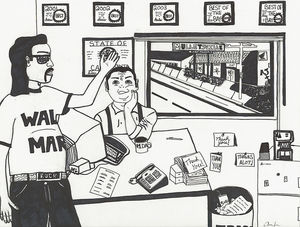




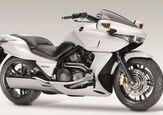


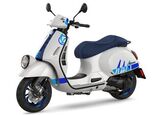
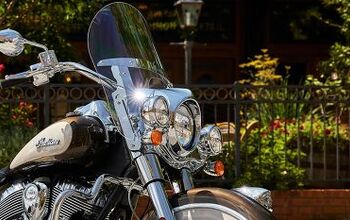
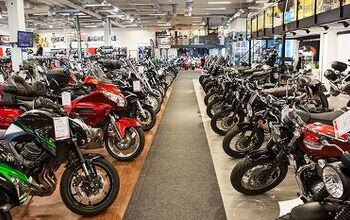



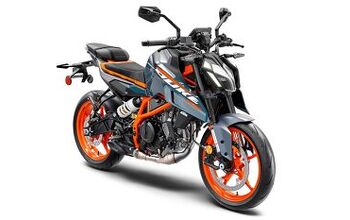
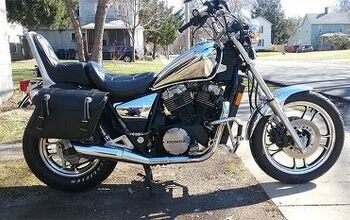
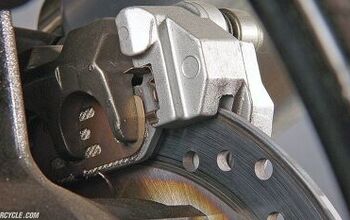


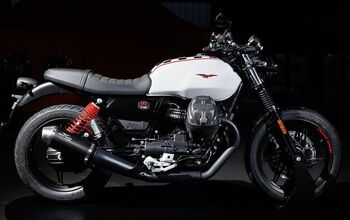
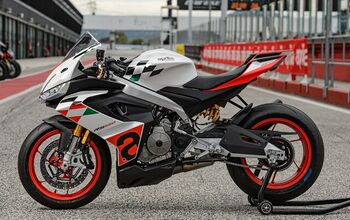
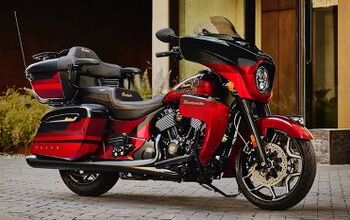


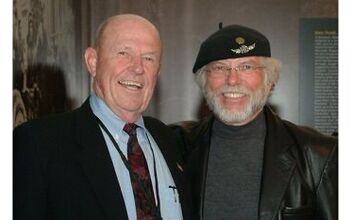

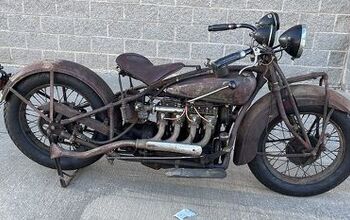
Comments
Join the conversation